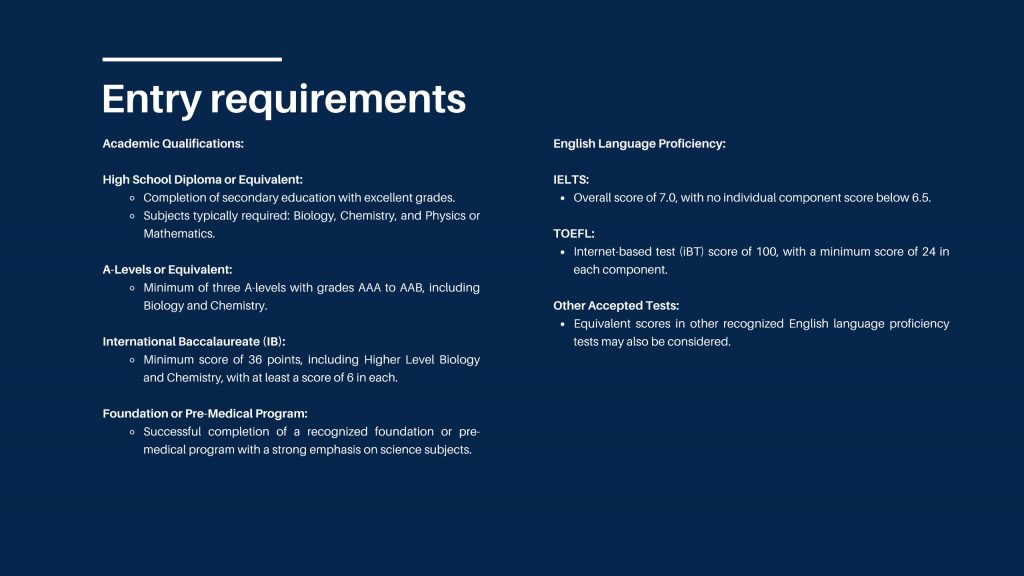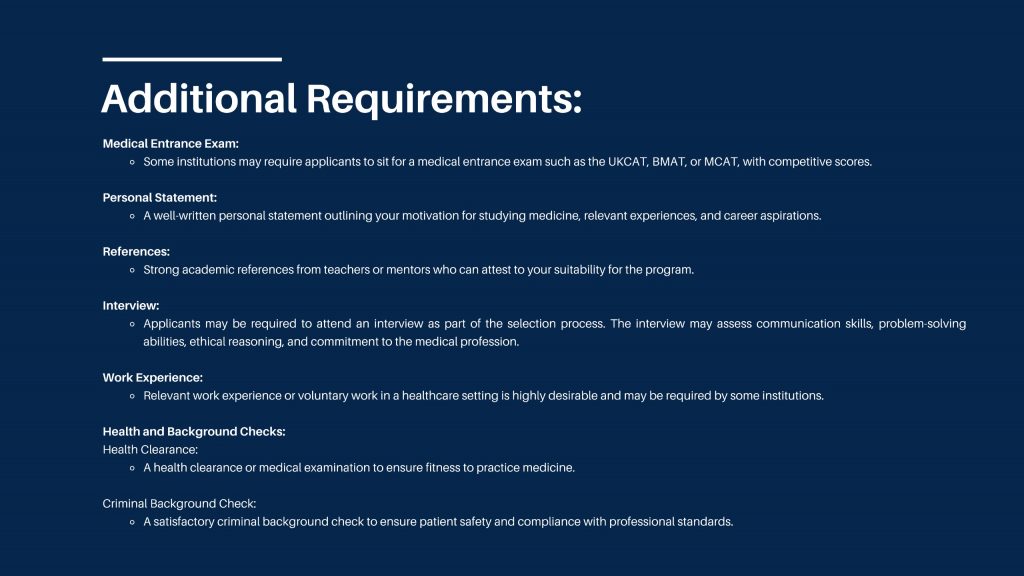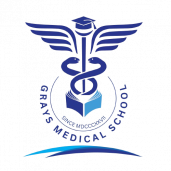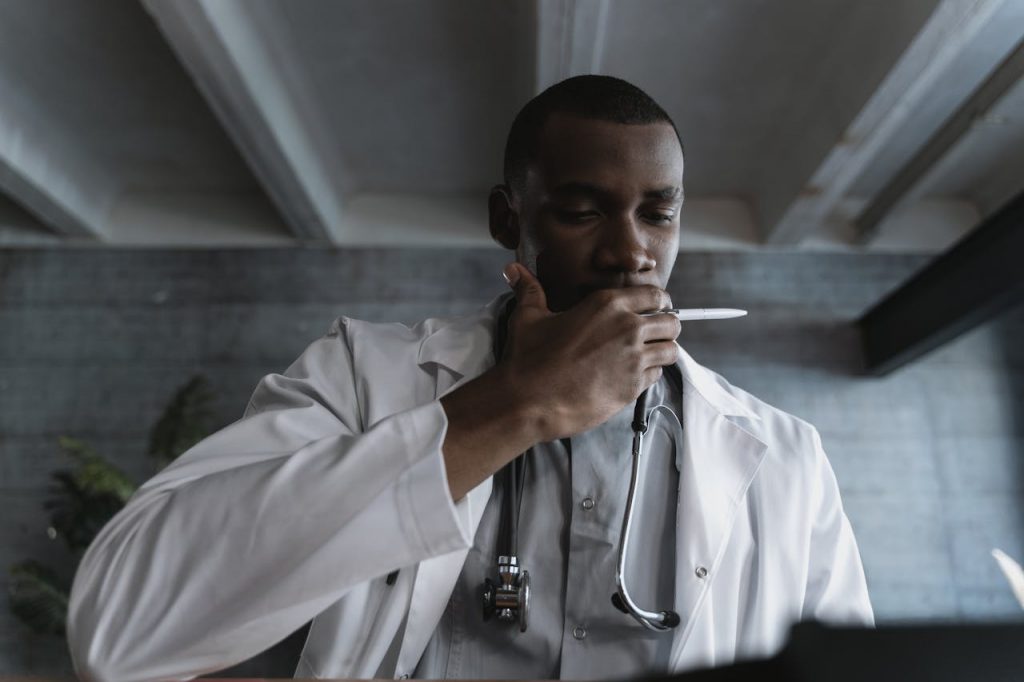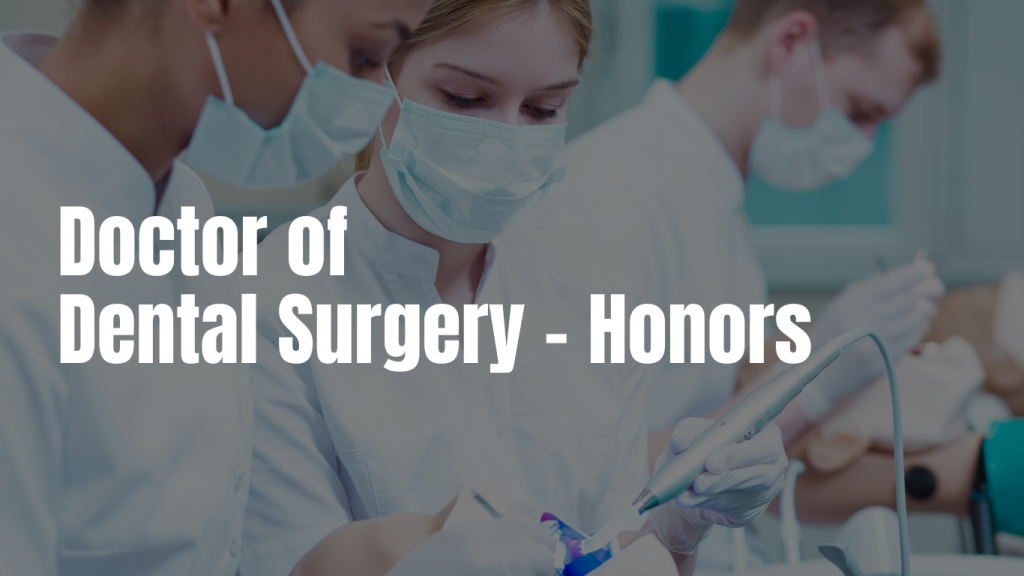
Course Overview
Dentistry is a distinguished profession that merges scientific knowledge with artistic skills to create and maintain healthy smiles. It is rewarding and challenging, offering ample opportunities to impact community health positively. At Grays Medical School, the DDS program stands out by integrating cutting-edge technology with a comprehensive understanding of biomedical, clinical, and behavioral sciences.
The curriculum encompasses various subjects, including human anatomy, craniofacial biology, physiology, biochemistry, microbiology, pathology, pharmacology, and human organ systems. Students will gain expertise in emergency procedures, infection control, and the management of oral health diseases. The program also emphasizes practical skills in operative dentistry, prosthodontics, oral surgery, and public health.
Graduates from the DDS program at Grays Medical School will be adept at performing various dental procedures, from basic tasks like tooth extraction to complex treatments such as root canal therapy and prosthodontics. They will be well-prepared to diagnose, treat, and prevent dental diseases, assuming professional responsibility for their patients’ safe and effective care. Equipped with the skills and knowledge to excel, they will be ready to serve in distinguished roles within local and international dental communities.

Year 1 to 5: Host Country
Year 1-2: Preclinical Sciences and Introduction to Dentistry
Semester 1:
Anatomy and Physiology for Dentistry
Biochemistry
Dental Anatomy and Occlusion
Microbiology and Immunology
Introduction to Dental Materials
Semester 2:
General Pathology
Oral Histology and Embryology
Pharmacology for Dentistry
Introduction to Clinical Dentistry
Dental Public Health and Preventive Dentistry
Semester 3:
Oral Pathology
Dental Radiology
Endodontics
Periodontology I
Operative Dentistry
Semester 4:
Prosthodontics I (Fixed and Removable)
Oral Surgery I
Orthodontics I
Periodontology II (Advanced)
Pediatric Dentistry I
Year 3: Clinical Training and Advanced Preclinical Studies
Semester 5:
Comprehensive Dental Care I
Prosthodontics II (Advanced)
Oral Surgery II (Advanced)
Orthodontics II (Advanced)
Pediatric Dentistry II
Semester 6:
Comprehensive Dental Care II
Community Dentistry
Oral Medicine and Diagnosis
Dental Ethics and Law
Elective (Research or Specialized Topics)
Year 4: Clinical Clerkships and Specialized Rotations
Semester 7:
Clinical Endodontics
Clinical Prosthodontics
Oral and Maxillofacial Surgery Rotation
Clinical Periodontics
Geriatric Dentistry
Semester 8:
Advanced Clinical Orthodontics
Advanced Clinical Pediatric Dentistry
Implantology
Advanced Oral Surgery
Elective Rotation
Year 5: Advanced Clinical Practise and Capstone
Semester 9:
Advanced Comprehensive Care Clinic I
Interdisciplinary Case Management
Advanced Diagnostic Imaging
Practice Management and Leadership
Elective in Specialty Clinic
Semester 10:
Advanced Comprehensive Care Clinic II
Public Health Dentistry and Outreach
Capstone Project/Research
Professional Development and Ethics
Elective (Specialized Training or Internship)
Overview
OF DENTISTRY AS A CAREER
Provide an Essential Health Service
Personal satisfaction is derived from helping
people maintain and improve their oral health,
quality of life and appearance.
Status & Prestige
The communities highly regard dentists
they serve through their contributions to society.
Many have proven to be socially conscious, civic-minded professionals with a distinguished history of leadership in improving community oral health.
Unleash Your Creativity
The delivery of patient services requires a
combination of artistic judgment and manual
dexterity. As the world moves forward digitally,
computer applications are increasingly used to
complement scientific knowledge and technical
skills.
A Balanced & Flexible Lifestyle
Offers the flexibility of work-life balance. There are
several specializations that a dentist can
choose based on interest and lifestyle needs.
Independence & Self-Employment
Most dentists look forward to being their boss
as this career provides the opportunity to open a
private practice, which not only gives them the
leverage of independence, but the chance to
accentuate their professional services for the
community.
Demand & Earning Potential
A dentist’s average income is relatively on the
highest side. Demand for dental care is projected to
grow with population growth and appreciation of
preventive services. As countries develop and the
population grows, maintenance of existing dental
work adds to the demand.
Variety of Work
No career comes without its challenges but as a
dentist, the chance to work with a diverse group of
patients not only makes the work interesting but it
exposes one to an extensive amount of career
experience
Detection of Diseases
Dentists are often the first healthcare providers to
identify oral illnesses, such as oral mucosal lesions,
cancer, systemic diseases, and many more.
Prevention through Education
Patients are educated on how to maintain oral
health for disease prevention. Dentists also take on
leadership roles through community-based
preventive programs such as water fluoridation,
oral cancer screening, oral health promotion, and
more.
Research
Work in research will contribute to knowledge
of oral diseases, treatment techniques, and
materials for better management of patients.
